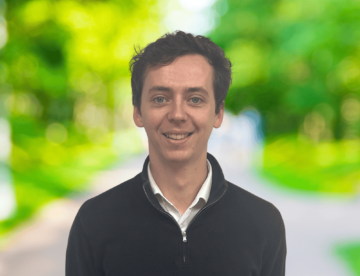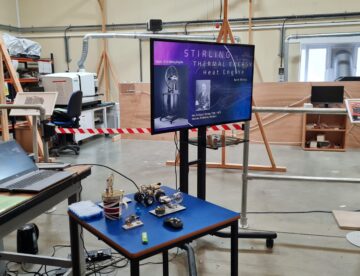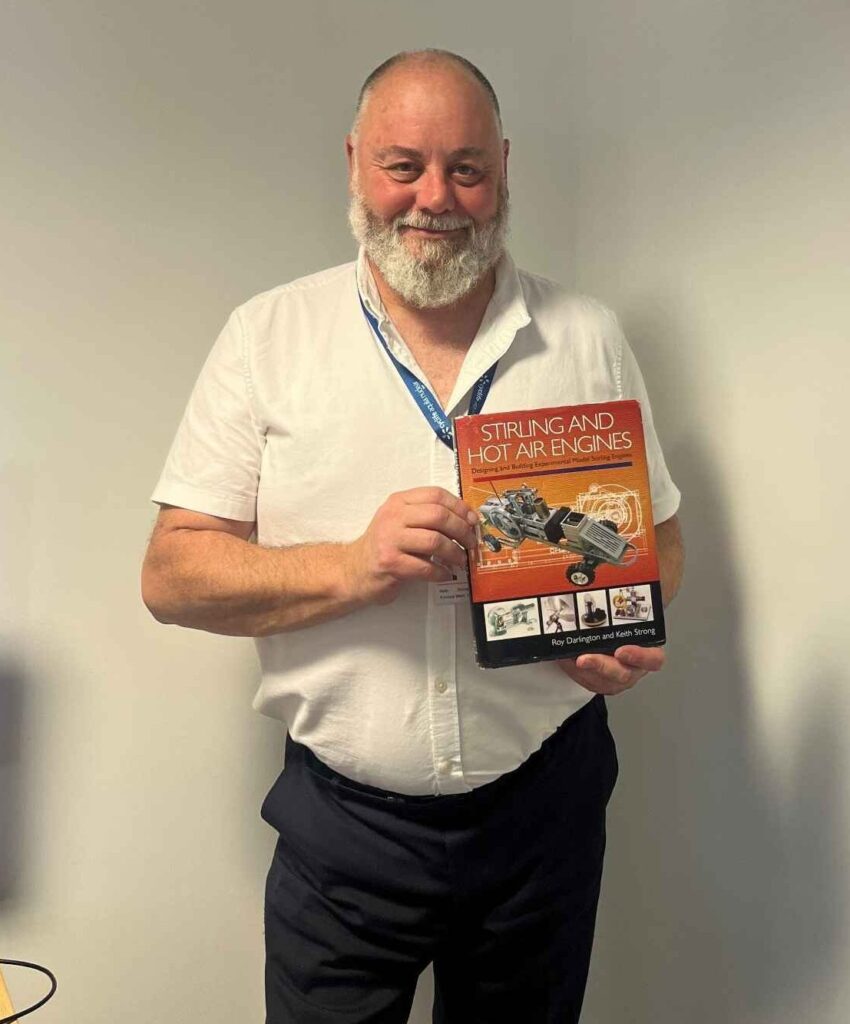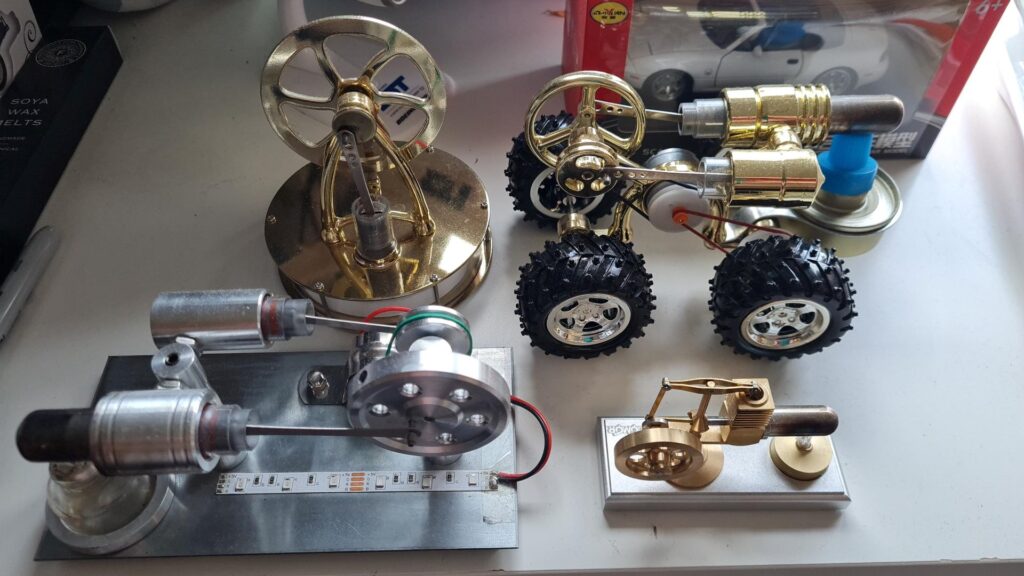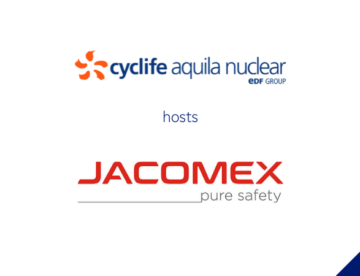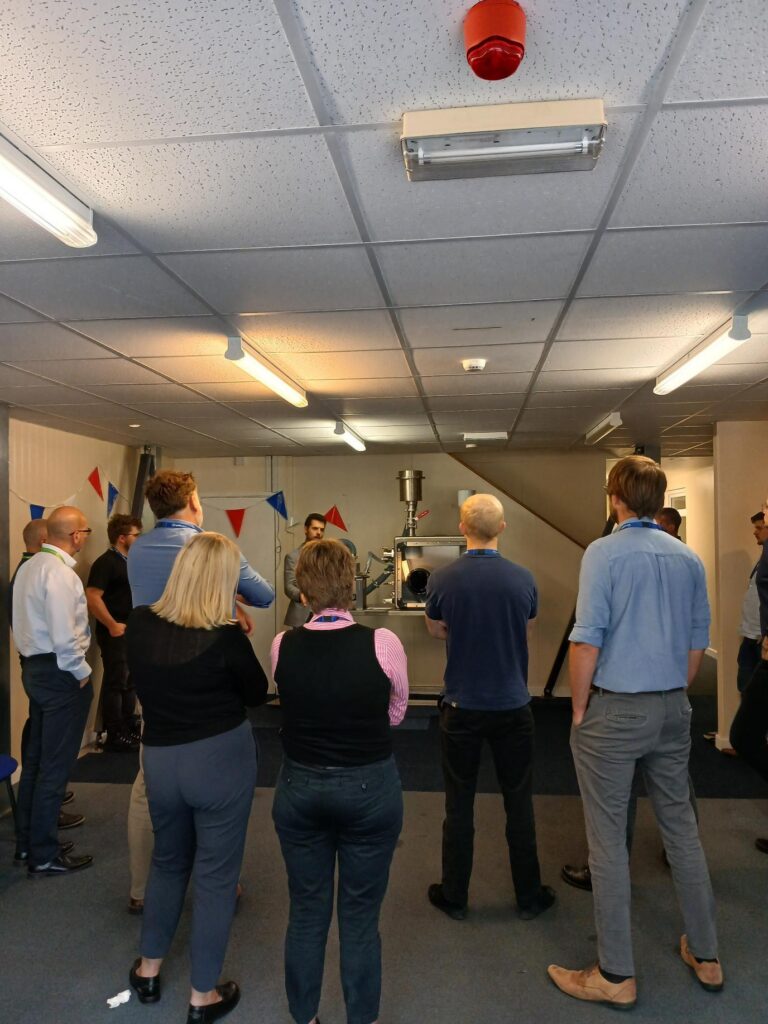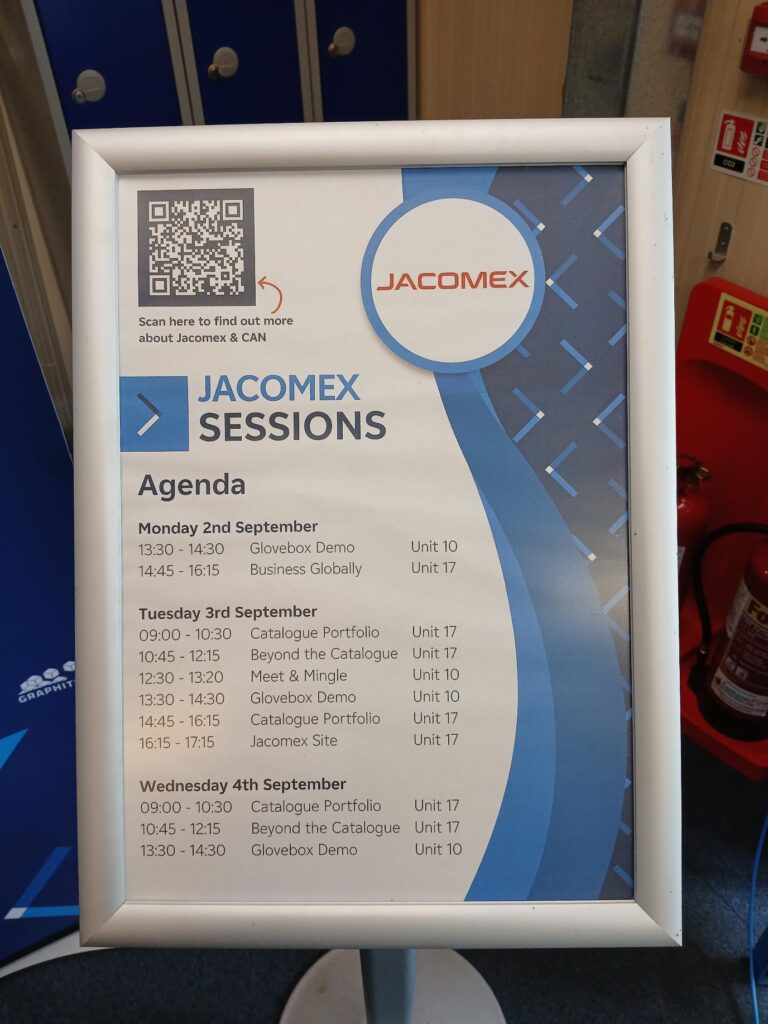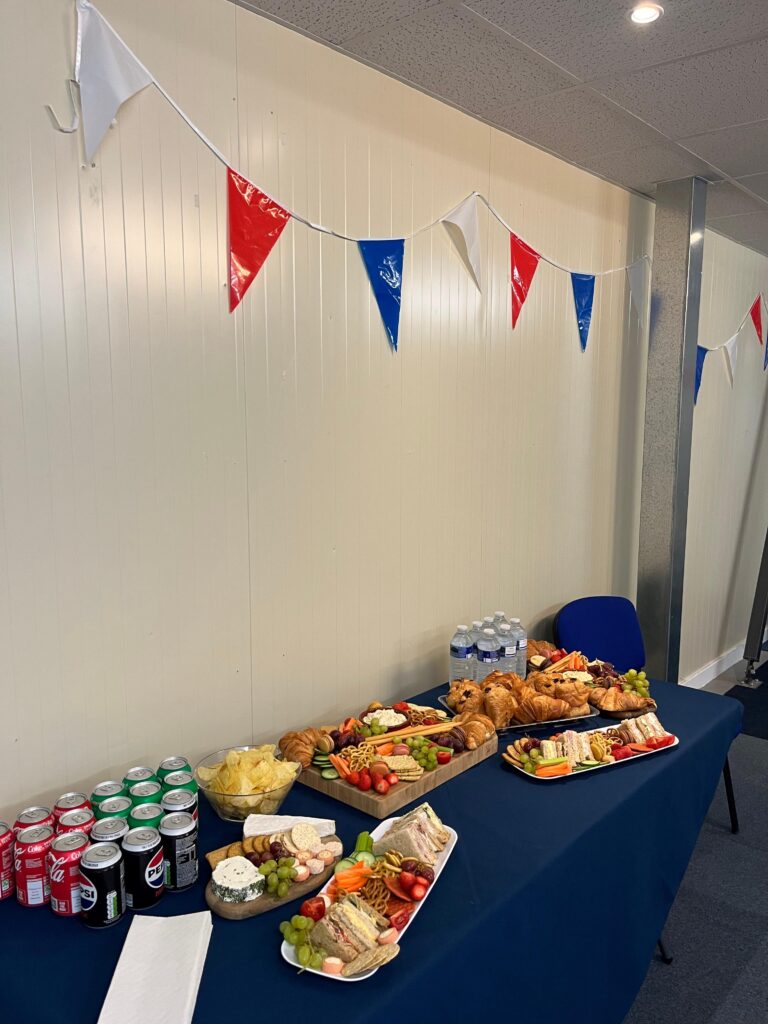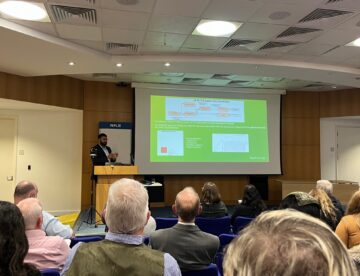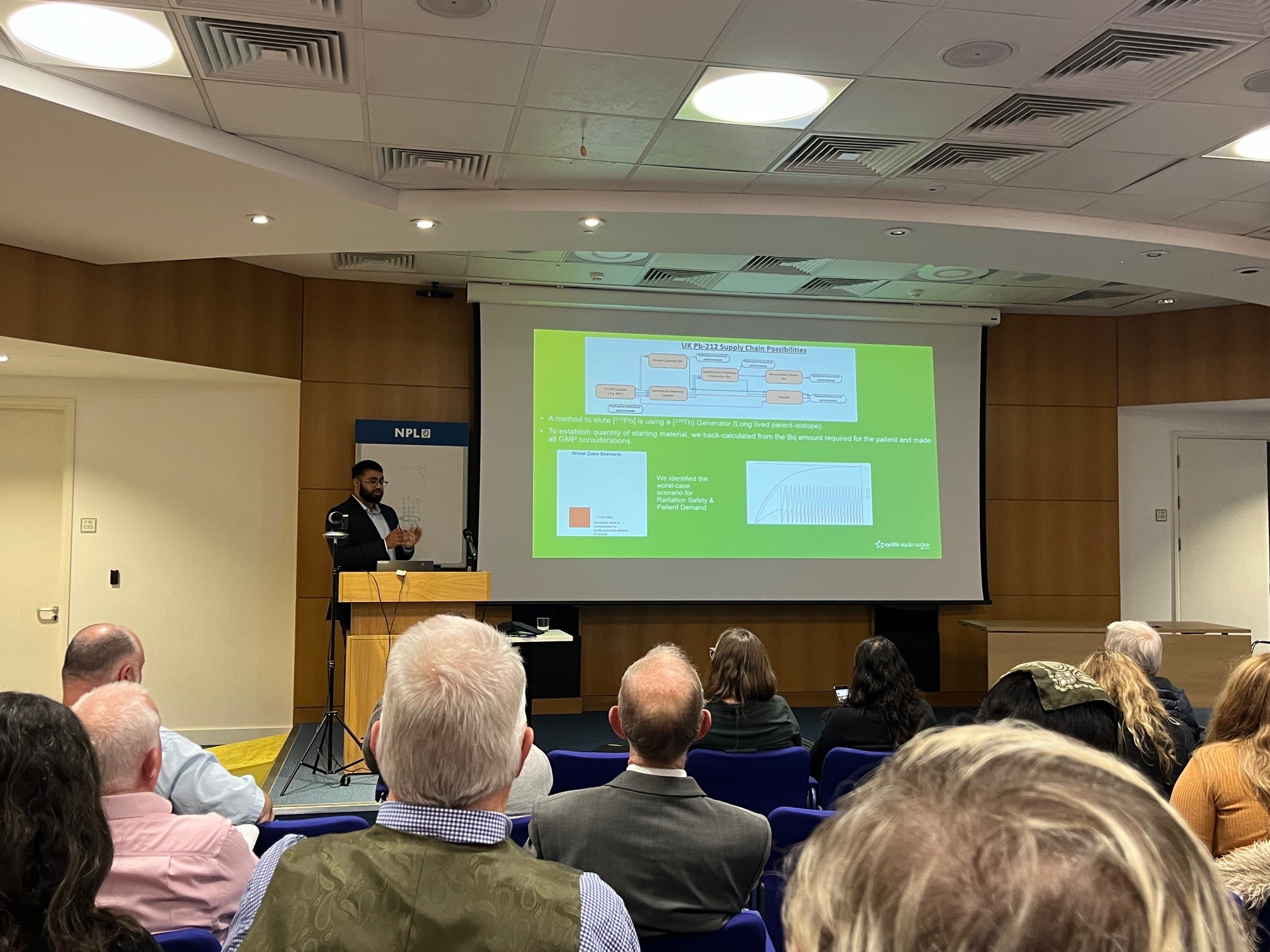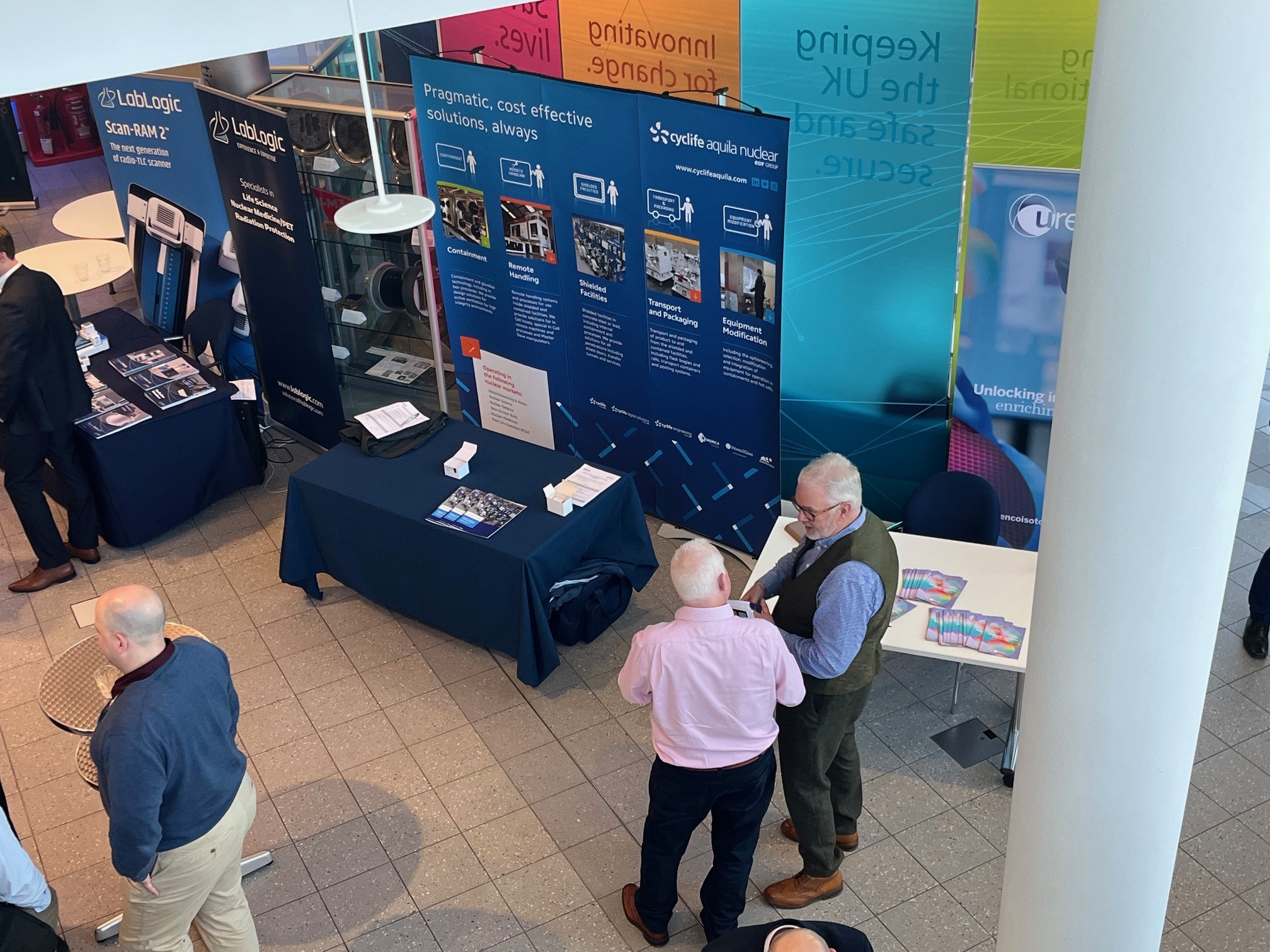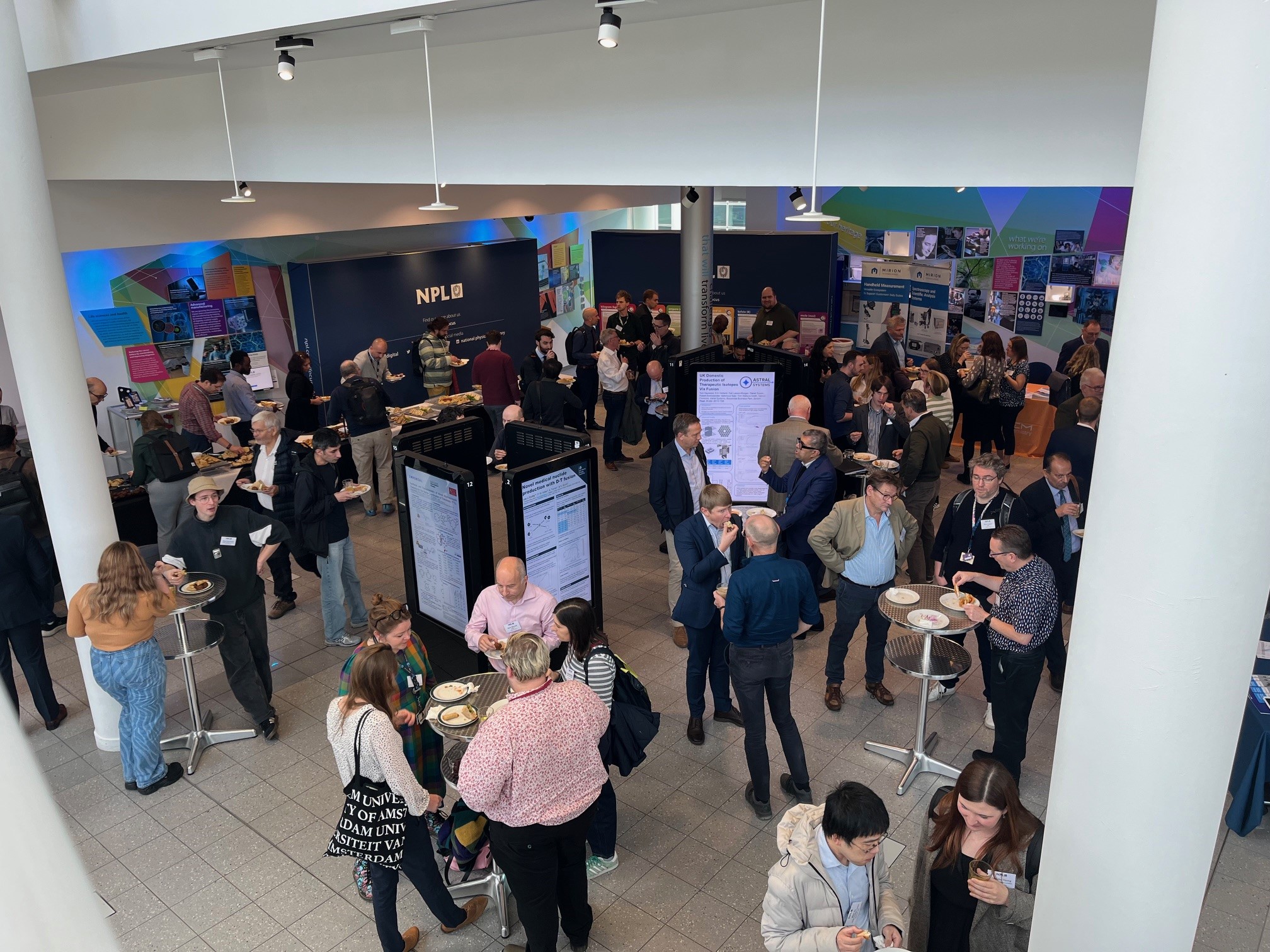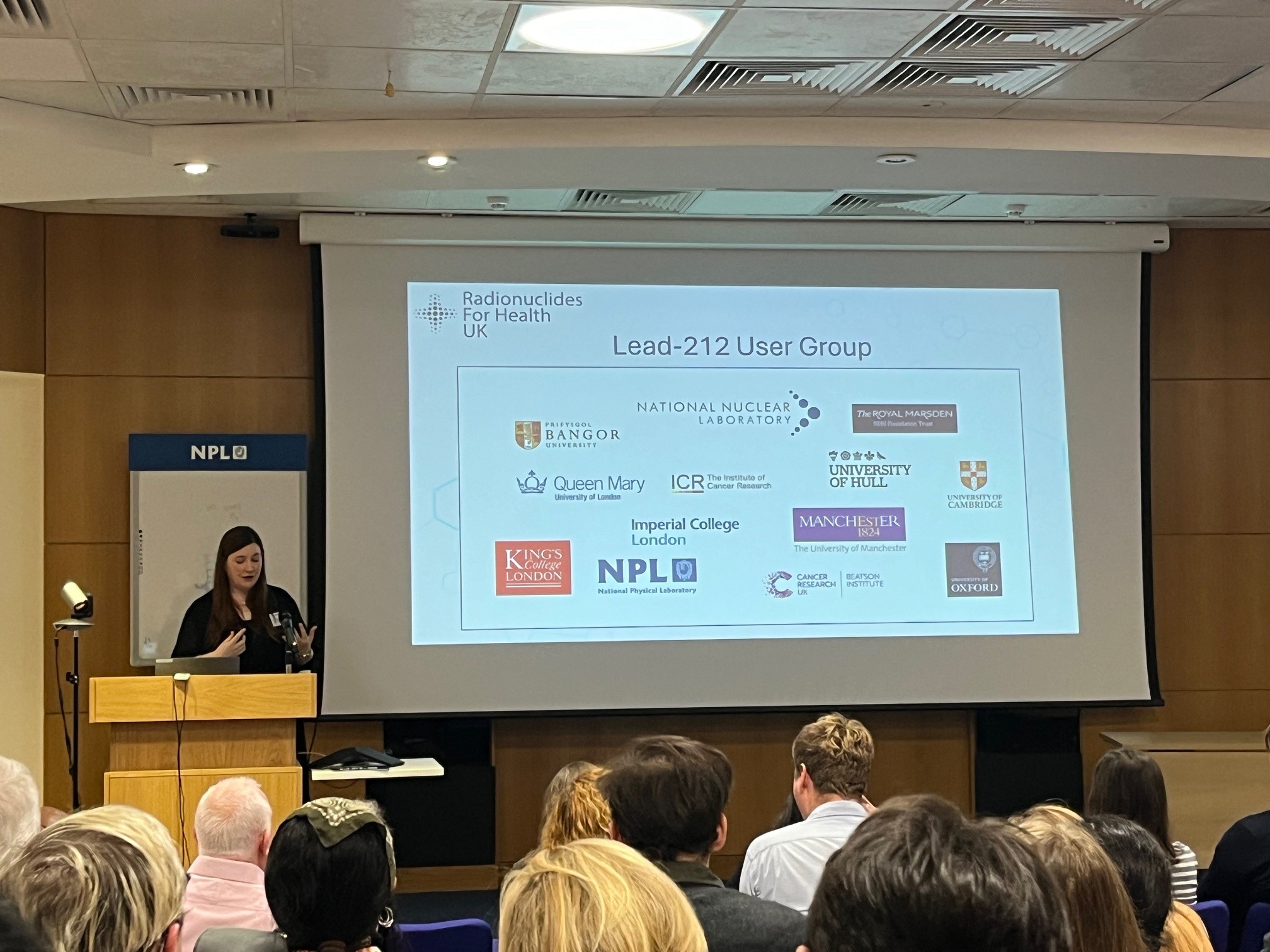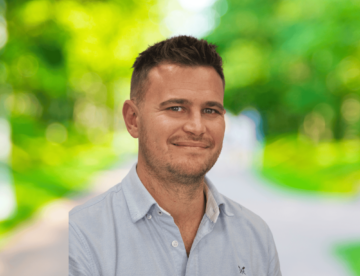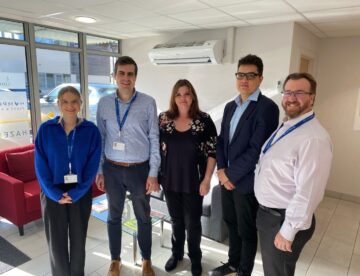Matt Fowler achieves his Chartership in Engineering with IMechE
At CAN we ensure that our employees are reaching their full potential, so we invest in their professional development by offering memberships to a range of professional bodies such as APM, CIMA, CIPD, IET, IMechE and NI. Being a part of a professional membership provides our employees with the opportunity to network with like-minded people, have access to industry resources, gain mentorship and career guidance and achieve professional recognition and credibility.
Congratulations to Matt Fowler, one of our Engineering Managers who recently achieved his Chartership in Engineering with IMechE! This achievement is a testament to Matt’s hard work, dedication to continued professional development, and personal growth as an engineer. We are extremely proud of Matt’s progression at CAN and look forward to seeing him continue to grow.
We asked Matt a few questions about his chartership and the importance of being a part of a membership body like IMechE…
Why is being a part of a professional membership so important and how was it helped you in your job role?
In October 2024, I became a Chartered Engineer, achieving full membership of the Institute of Mechanical Engineers (IMechE), having previously been an associate member since 2014. Maintaining this professional membership is important to both my professional development and career aspirations for several reasons:
Access to Knowledge and Best Practices – The IMechE provides access to the latest research, case studies, and industry best practices. This is particularly valuable for staying on top of innovative technologies, methodologies, and regulatory changes. As an Engineering Manager these resources help me understand emerging trends in engineering processes, tools, and leadership approaches, allowing me to implement strategies that will increase engineering throughput, quality, and efficiency.
Networking and Collaboration – Professional membership of an organisation such as the IMechE grants access to networking events both in London and across the various regions of the UK. These events provide an excellent opportunity to meet with and learn from fellow professionals, which ultimately leads to new connections and collaborations that you would otherwise miss out on.
Career Development and Growth – Membership of a professional organisation offers access to certifications, training programs, and workshops that help you stay current with technical skills as well as leadership capabilities. For example, the IMechE supported me through the application process to becoming Chartered, which has boosted my career and coincided with a promotion into Engineering Manager.
Advocacy and Credibility – Being affiliated with a respected professional body lends credibility to your work and signals to stakeholders that you are committed to maintaining high standards. It also provides a collective voice for advocating for the engineering profession and influencing policy changes.
Staying Motivated and Inspired – Lastly, being part of a community of like-minded professionals helps to foster a sense of belonging and purpose. It provides ongoing motivation to push the boundaries of what is possible in both engineering practice and leadership. This is particularly relevant to the current phase of my career as I am now looking to give back to the community by volunteering at events that shaped my education, such as Formula Student UK, to try and inspire the next generation.
Please share your experiences of becoming a chartered engineer
Becoming a Chartered Engineer is a lengthy process, there’s no two ways about that!
In my experience, the key to achieving Chartered status is consistent and experienced mentorship, whether that be via a colleague or a regional IMechE outreach officer. I was incredibly lucky in the fact that I benefited from both; firstly, from the professional development scheme at Cyclife Aquila Nuclear and secondly from Steve Acott at the IMechE.
While the application process is long and the application itself is tricky to write at times, the sense of satisfaction once completed was incredible; I would highly recommend pursuing CEng/IEng/EngTech if that is something that is relevant to your career.
Keith Strong: Stirling and Hot Air Engines
At CAN we are truly proud of our workforce and love hearing about the achievements that they have outside of the workplace. One of our Principal Engineers, Keith Strong, has a passion for Stirling Engines and has co-written a book all about them! The book was published in 2005 and has become one of the most accessible and leading worldwide sellers in the subject area. You can find a copy of his book here: ‘Stirling and Hot Air Engines: Designing and Building Experimental Model Stirling Engines’ ISBN 186126688X.
Keith’s knowledge and experience is truly impressive, therefore, we asked him to share his insight and give a presentation to CAN employees. Keith’s presentation started with an introduction of the history behind the Stirling cycle and the early machines that the Scottish Dr Rev Robert Stirling patented in 1816. It was interesting to note that the patent didn’t initially recognise the Stirling cycle and the patent office crossed out Stirling and put Steam in its place. It only took 100 years to get that changed. Keith then introduced his varied and extensive background in engineering ranging from Space and Subsea, to Automotive and Viking ships.
In his presentation, Keith examined what an internal combustion engine is, namely Petrol, Diesel, 2 stroke, Jet, Gas turbine, Rocket and Radial and that Stirling engines are classed as external combustion engines along with Steam, and by proxy some electric vehicles when the electricity is generated from burning fuel.
He then moved on to look at non-combustion energy, harvesting in the form of Thermal Electric, Peltier, Solar panels and Solar Stirling showing a 2GW solar Stirling facility. Keith then explained that some applications of Stirling engines have powered submarines, which help significantly in improving their stealth capabilities.
Keith explained that the Stirling cycle can be used not just as a means of producing shaft power as a prime mover, but can also be driven by a motor and act as a heat pump, which led onto his explanation of the Cryocooler variants of the Stirling cycle. He spoke about the pressure temperature exchanges followed by the Carnot cycle. In this section, we got a glimpse of some of the space applications and possibilities of the Stirling cycle machines.
Keith then showed us a liquid piston version of the Stirling engine called a Fluidyne engine which was a remarkably simple, practical and cheap use of the cycle.
Of the 25 variants we were shown, the primary ones included Alpha, Gamma, Beta, Low Temperature differential, Fluidyne, Thermo Acoustic and solar Stirling.
Nuclear applications around the Stirling cycle typically were power generators, where the heat from a nuclear fuel provided the heat source and the Stirling engine side harvested that heat energy and turned it into electricity, perfect for space missions where there is likely to be no solar activity. Examples of these missions are ‘beyond the solar system and deep space’, missions to planets and moons where the ‘sun doesn’t shine’ such as the largest moon of Saturn, Titan. The talk finished with a précis of Stirling applications and advantages that could be used in conjunction with nuclear applications and highlighted remote non photovoltaic solar energy harvesting (Space, Remote, Subsea and Subterranean) which turns out to be more efficient than photovoltaics.
Stirling nuclear applications possible included:
- Self-starting temperature control with non-human interface, automated heat energy transfer.
- Cryogenic levels of cooling, minimal moving parts possible.
- Reliable and long-lasting high-energy transfers.
- An alternative non single point of failure or as a backup generation capacity.
- Works at almost all temperature ranges, Hot & Cold, Hot & Hotter or Cold & Colder.
- Reversible and generative heat control can heat or cool or extract energy from many systems.
- Allows collecting of energy from low grade heat sources.
- Robust and simple, reliable in harsh environments.
- Does not need computers or electronics to function.
It was great to see how many people attended Keith’s presentation; he received some really positive feedback, our employees appreciated discovering something new and interesting that a lot of them hadn’t heard much about. If we ask nicely, we may be treated to further talks on wave propulsion, wing in ground effect hovercraft, designing in space and even Viking ship design!
Thank you to Keith for sharing his knowledge with us all and hosting an insightful presentation and learning session.
Jacomex Week: Empowering Our Team with Knowledge and Insights
At the beginning of September, Cyclife Aquila Nuclear (CAN) held a ‘Jacomex Week’. Christopher Planche, Area Sales Manager for Northern Europe for Jacomex, flew over from France to host various sessions with our employees to learn more about Jacomex and their product offerings. Jacomex is a French SME established in 1945, pioneering the Glovebox and Containment Industry in Europe. The activity of Jacomex covers the entire supply for glovebox systems and purification units, from bespoke mechanical and automation design, fabrication, assembling and testing, delivery, onsite assembling and testing, user training and aftersales services for maintenance and spare parts. You can read more about our partnership with Jacomex here: Jacomex UK – Cyclife Aquila Nuclear | EDF Group
The week began with a ‘Business Globally’ session which focused on reviewing Jacomex’s business relationships, sharing cross-learnings from other distributors, and discussing Jacomex’s plans. It also delved into competition analysis, EU markets, and strategies for sales and tendering. The next session was ‘Catalogue Portfolio’ and this focused on Jacomex’s product offerings which was particularly beneficial for our tendering, sales, engineering, and project teams. It ensured that all team members were well-versed on Jacomex’s product range. Taking a look at the business as whole, we had a session on “Beyond the Catalogue” which focused on Jacomex’s bespoke manufacturing options and engineering consultation services.
A highlight of the week was undoubtedly the “Show and Tell” session featuring a demonstration of their Glove Box. Open to all staff, this hands-on demonstration showcased Jacomex’s technology and its applications. It was an excellent opportunity for everyone, regardless of role, to gain a tangible understanding of one of their key products.
During the lunch break on Tuesday, we hosted a ‘Meet & Mingle’ session, giving employees a chance to chat with Christopher and ask him any questions. It was also a great opportunity for employees to meet colleagues from different departments and discuss the sessions.
Finally, we concluded the week with an overview of Jacomex’s manufacturing site. This session, particularly relevant for our tendering, sales, and engineering teams, included photos and detailed information about Jacomex’s production facilities and capabilities. It gave our team a renewed appreciation for the scale and sophistication of their operations.
A special thank you to Paul Adlem and Dave Collings for their organisation and planning on the lead up to the event and of course to Christopher for hosting the sessions and sharing his valuable knowledge with the CAN team.
If you would like to learn more about Jacomex, you can view their website here: Custom-Made Glove Box Workstation and Isolator Manufacturer
We look forward to continuing to enhance our employee’s knowledge of our suppliers and hope to hold a similar event very soon!
CAN attends NPL’s ‘Radionuclide Production in the UK’ event
Last week, Dave Barker, Director of Strategy, Paul Adlem, Customer Manager, Amin Choudhury, Scientific Officer and Keith Strong, Principal Mechanical Design Engineer had the privilege of attending the ‘Radionuclide Production in the UK’ workshop at the National Physical Laboratory (NPL) in Teddington. The event was hosted by NPL and the Royal Society of Chemistry (RSC) and brought together leading experts to explore the current landscape and future potential of radionuclide production for nuclear medicine and other applications. The day was packed with insightful presentations and discussions, showcasing the incredible strides we’re making in this critical field. Below are a few standout moments that left a lasting impression:
Radionuclides for Health UK
One of the most enlightening talks of the day came from Jennifer Young of King’s College London. Her presentation on “Radionuclides for Health UK” painted a vivid picture of the transformative potential these innovations hold for our healthcare system. Jennifer’s expertise shone through as she detailed the latest advancements and the roadmap for integrating these cutting-edge technologies into clinical practice. It was inspiring to see how the UK is positioning itself at the forefront of nuclear medicine, with a clear focus on improving patient outcomes and expanding treatment options.
Local Production of Lead-212: Overcoming Challenges for Better Patient Care
We were particularly proud to see our Scientific Officer, Amin Choudhury take to the stage to discuss “Hot cell Design Considerations for Pb-212 Generators.” His talk shed light on the complexities involved in the local production of Lead-212 and the innovative solutions being developed to overcome these challenges. Amin’s expertise in this area is a testament to the talent we have in our team, and it was gratifying to see our work recognised in such a prestigious forum.
Nuclear Medicine Infrastructure
What struck us most about this event was its comprehensive nature. From cutting-edge research to practical considerations of production and supply chain management, the workshop covered all aspects of the infrastructure changes needed to support and drive innovation in nuclear medicine within the UK.
The diverse range of topics included:
- The UK Medical Radionuclide Innovation Programme
- Advanced Radioisotope Technology for Health Utility Reactor (ARTHUR) Programme
- Development of UK Astatine-211 Production Capability
- End-to-End Accelerator Production of Actinium-225 from Radium-226
- Extraction of radionuclides for Targeted Radionuclide Therapy from UK Legacy Material
- Nuclear Medicine trends and supply chain considerations
As we reflect on the event, we are filled with optimism about the future of nuclear medicine in the UK. The collaborative spirit, innovative thinking, and dedication to improving patient care were palpable throughout the day. It’s clear that we’re on the cusp of a new era in UK, healthcare, one where targeted, personalised treatment become the norm rather than the exception.
We want to extend our thanks to the organisers, speakers, and attendees who made this event such a success. The connections made and knowledge shared will undoubtedly catalyse further advancements in the field.
World Mental Health Day 2024
World Mental Health Day was on Thursday 10th October and to mark this occasion we decided to host a Tea & Talk session, inspired by the Mental Health Foundation. Not only was this a great opportunity for employees from different departments to come together and mingle, but it also provided a supportive environment for people who did want to discuss mental health topics. We discussed ideas on how we can continue to support mental health in the workplace, and celebrate what’s working.
We ensure that our employees are aware of our mental health resources all year round. As part of our benefits scheme, we have access to MyStrength, an app that is dedicated purely to mental wellbeing support providing our employees with personalised guidance to help overcome life’s challenges, from guided meditation to improving sleep, and lots more. We also have access to WeCare, which is another app that has mental health support, burnout prevention and offers a pathway to access life events counselling.
In addition, we have trained mental health first aiders who are available if anyone needs to reach out to them, an internal mental health training toolkit for line managers, and a number of courses on iHasco for our employees to access. Our HR team will also support anyone who needs it.
World Mental Health Day is fundamental as it raises awareness, especially within the workplace, it helps to break the stigma of talking about mental health and most importantly, raises money for amazing charities and services that help people struggling first-hand.
If you would like to donate to the Mental Health Foundation, you can do so here: Donate to the Mental Health Foundation
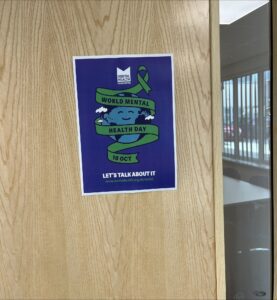
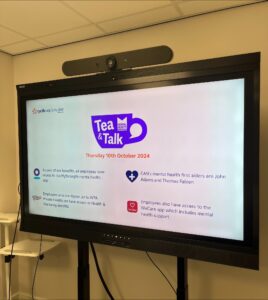
Photographs from Tea & Talk event
CAN become first nuclear organisation to be awarded ISO 30415 Standard for Diversity and Inclusion
Earlier this month Cyclife Aquila Nuclear (CAN) were awarded the ISO 30415 for Diversity and Inclusion, making them the first nuclear organisation in the world to achieve the standard.
As an internationally recognised Standard, ISO 30415 focuses on HR Management and the importance of diversity and inclusion in the workplace. It includes reviews of internal organisation systems, policies, processes and practices to ensure an inclusive workplace. The benefit of the international standard is that it is recognised across borders and can be applied by companies all over the world.
Dr Nara Ringrose, Head of People & Organisational Development said:
“We are immensely proud to have attained ISO 30415:2021 accreditation, a testament to our dedication to the ethical global standards of inclusion, equity, and diversity. Our values and guiding principles cultivate a collaborative culture, and the People Excellence agenda is our foremost priority. This certification allows us to ensure that our HR activities align with business goals and international HR standards.”
Attaining the standard was led by the Diversity & Inclusion Working Group; Joanna Kelloway, Recruitment Manager, and Arnie Saakyan, Employment & Management Officer with input from the CAN Executive Leadership Team and Operational Management Team.
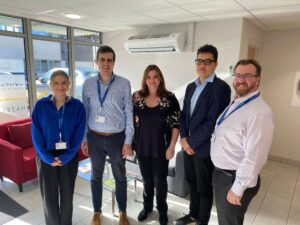
Over the last nine months, a robust process has been established for assessing CAN HR processes and procedures as well as reviewing the content of the HR staff handbook, supportive toolkits for managers, and training and recruitment data.
The assessment process was vast and included interviews with CAN employees by an external assessor, regular monitoring of CAN social media, interviews with the HR team, and preparation of a master ISO presentation.
CAN Managing Director, Drew Corbett, reflects on this achievement and what it means for current and future employees:
“Achieving the ISO 30415:2021 Diversity and Inclusion accreditation is a fantastic achievement for our business. Creating an inclusive environment which enables us to build and develop diverse teams has been key to our growth to date and will be vitally important to the continued success Cyclife Aquila Nuclear. At CAN we have four guiding principles: to act collectively, be accountable, take care and feel pride and I don’t think there is any better evidence that we live and breathe these values than this accreditation.”
The standard demonstrates CAN’s ongoing commitment to diversity and inclusion, this includes working and communicating inclusively, advocating and championing diversity and empowering employees to act accountably.
CAN will continue to maintain the ISO standard by developing new HR policies and internal training, talent management, and promoting diversity dimensions, including the demographic and other personal characteristics of the workforce, such as age, disability, sex, sexual orientation, gender, gender identity, race, colour, nationality, ethnic or national origin, religion or belief.


